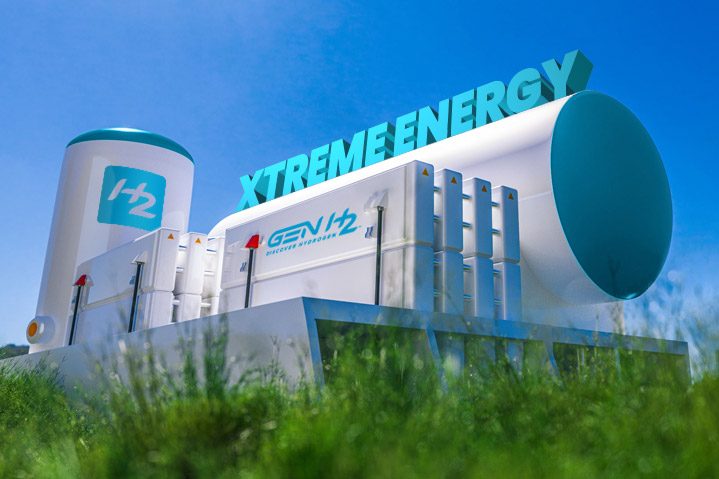Hydrogen From A to Z: X For Xtreme Energy Carrier
By: GenH2 Staff
Read Time: 3 minutes
Continuing in our defining the Hydrogen economy from the A to Z series, we are visiting the letter X and discussing how hydrogen is an Xtreme energy carrier.
Hydrogen, along with being renewable, clean, and abundant, is also an excellent energy carrier when compared to non-renewable sources (fossil fuels), but what does it mean when described as the Xtreme energy carrier?
Specific energy is defined as the amount of energy that can be stored in a certain amount (mass) of fuel. In other words, if a substance has a higher specific energy, it is a more effective energy carrier. The specific energy of hydrogen in both its liquid and gaseous forms outperforms those fossil fuels by impressive margins.
In terms of chemical energy, one kilogram of hydrogen, in either gaseous or liquid form, contains approximately 142 Megajoules (MJ) of energy. This compares to much lower values of one kilogram of gasoline, diesel, or kerosene containing about 46 MJ, or one kilogram of coal containing about 36 MJ of chemical energy. Hydrogen is also more than 200 times more energy dense that lithium batteries.
These values indicate specific energy of hydrogen is just over three times that of gasoline, and in terms of mass, for every mass unit of hydrogen, there must be at least three mass units of gasoline to compensate for the difference in energy. This inherent characteristic of hydrogen significantly adds to the value of hydrogen as a fuel carrier, as this allows more energy to be transported to wherever it is needed. Not considering the special challenges of volume (which are addressed with the use of liquid hydrogen in storage), the significant reduction in weight due to this increased energy density will further increase the efficiency of the fuel carrier.
The enhanced energy density in mass of liquid hydrogen is already being applied in the space industry as an Xtreme energy carrier, as it is currently the top fuel source for large rockets. The most notable of these is NASA’s Space Launch System (SLS) for the Artemis program, which is scheduled to make its maiden voyage relatively soon, although hydrogen fuel was also used in the Gemini, Apollo, and Space Shuttle missions. Additionally, hydrogen electric cells (“fuel cells”) were present on all Apollo spacecraft and Space Shuttle orbiters, providing both electrical power and drinking water to the astronauts stationed in them.
Hydrogen is the Xtreme energy carrier for Space, but also the premium energy carrier for both electric and fuel systems for the cleaner energy evolution and revolution as the infrastructure to support that vision is being designed and implemented. Companies like GenH2 are working hard to make liquid hydrogen, the Xtreme energy carrier available for small-scale industrial markets as technology gaps are being narrowed to make this a reality. Providing a platform for understanding the performance of this Xtreme energy carrier and how to take advantage of safely controlling liquid hydrogen, and efficiently and effectively transferring this valuable resource by using controlled storage tanks, integrated cryo-refrigeration, and advanced servicing systems will be critical to widespread adoption of hydrogen for diverse and multiple markets.
Follow us again next week as we explore another letter in our Discover the Hydrogen Economy from A to Z series.



